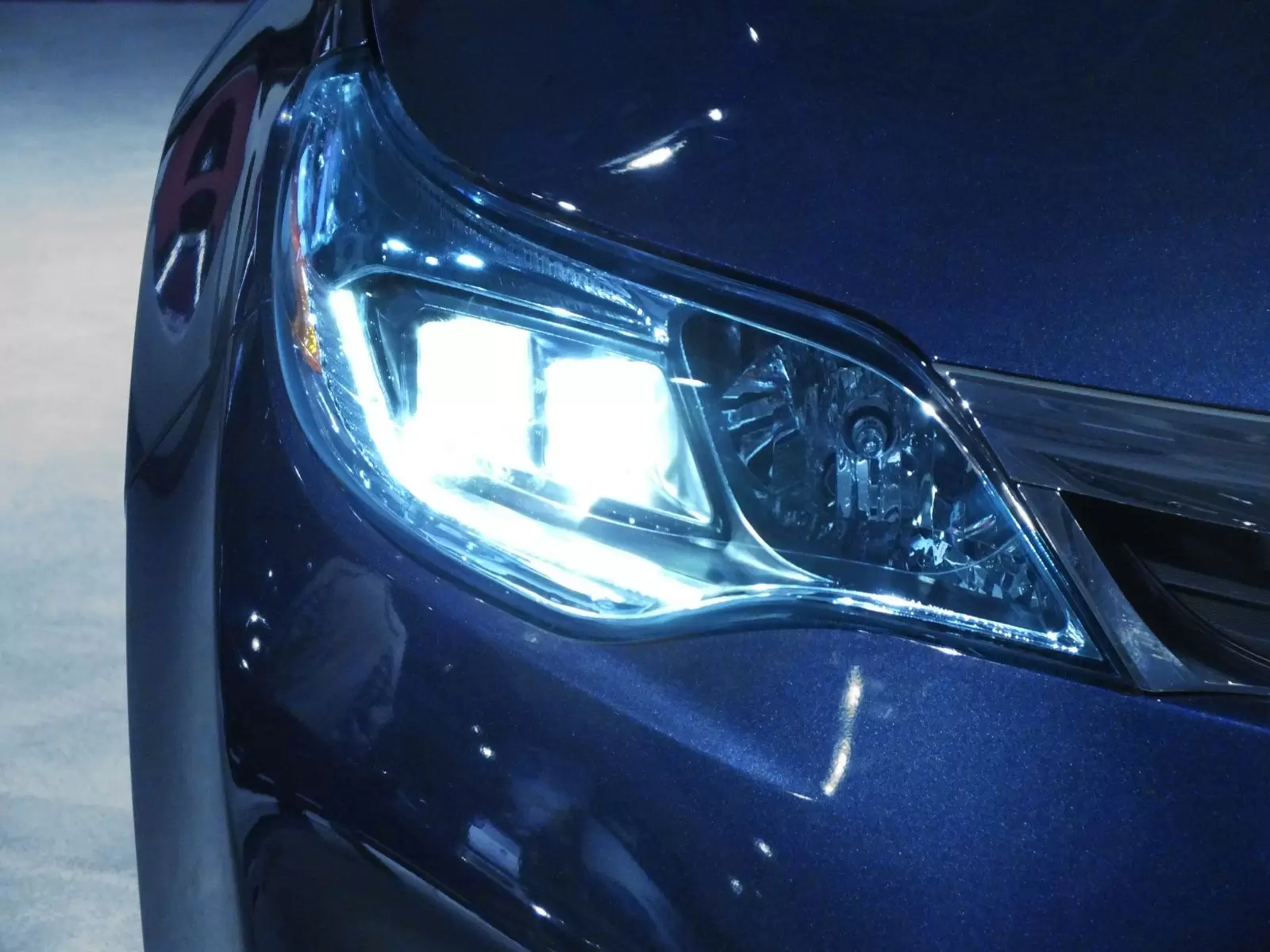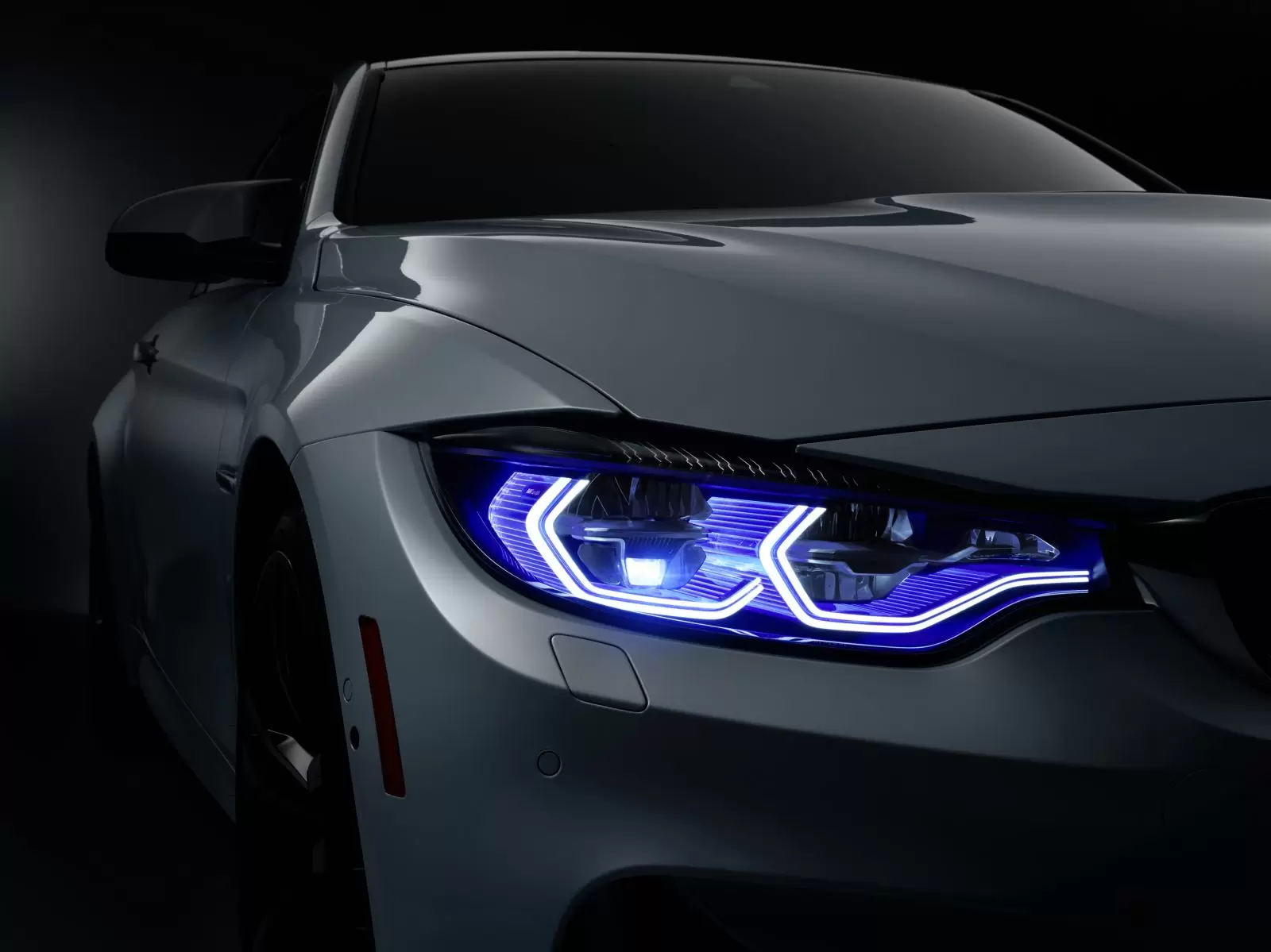PowerBulbs is here to help - we’ve put together this handy guide to take the head-scratch out of headlights. Keep on reading to find out the differences between each type of bulb and their advantages and disadvantages.
Headlight technology at a glance
Take a look at the differences between technologies with this simple reference guide:
| Halogen | Xenon HID | LED | Laser | |
| Estimated colour temperature | 3200K - 5000K | 4000K - 6000K | 4000K - 6000K | 5500K - 6000K |
| Estimated lifetime | 200 - 400 hours | 2,500 hours | 5,000 hours | 30,000 hours |
| Installation | Easy to install on most vehicles - the bulbs can be simply slotted into place | You may need an auto-electrician to replace due to the voltages involved | You may need an auto-electrician to help you install LED headlight bulbs | Not installed in cars yet - you'll need a complete redesign of the headlight itself |
As you can see, each technology offers different benefits. Now, lets get down to the nitty-gritty of each...
Halogen
Halogen is the most popular type of headlight bulb currently on the road. The bulbs are cheap to manufacture, plus they’re very simple to replace on most  vehicles.
vehicles.
Inside the bulb is a filament made out of tungsten and halogen gas. The bulb lights up when electricity reaches the filament, heating up the tungsten which begins to glow. Don’t worry, though - this heat won’t do any damage to your car.
Most halogen headlamps produce a colour temperature between approximately 3200K and 5000K. This is one big disadvantage of halogen headlights: unless you go non-road legal, you won’t be able to achieve a true close colour match to a xenon HID.
Take a look at our Halogen Headlight Bulbs here.
Xenon HID
The number of xenon HID bulbs on the road is increasing. They now come as  standard on many high-end vehicles, giving that premium, stylish look that some halogens can’t achieve. Xenon bulbs can produce a brighter, whiter light than a halogen car, and tend to have a longer lifespan.
standard on many high-end vehicles, giving that premium, stylish look that some halogens can’t achieve. Xenon bulbs can produce a brighter, whiter light than a halogen car, and tend to have a longer lifespan.
HID stands for High-Intensity Discharge. The bulb works in a different way to a halogen. Instead of a filament heating up and glowing, HID headlights use electrodes to charge the gas inside the bulb. This produces the light you see on the road. Xenon bulbs can produce a brighter, whiter light than a halogen car, and tend to have a longer lifespan.
One downfall with xenon headlights is that they take a few seconds to reach full brightness when you first switch them on. They also need to be used a few times so that they can 'settle in' and achieve their full potential.
Find our xenon HID range here.

HID Conversion Kits
If your car uses halogen bulbs but you’re after a real Xenon HID look, you can now get HID Conversion Kits. The kits contains a Xenon bulb and a ballast that has been specially designed to fit into a headlamp unit that usually only takes halogen bulbs.
There are two things to think about when considering a HID conversion kit. Firstly, Xenon HID bulbs are only road legal when they’re factory-fitted. In other words, your car needs to originally have Xenons fitted for the bulbs to be classed as road legal. HID kits are not road legal.
It's important to always buy a HID conversion kit from a reputable source that you trust. M-Tech's kits are manufactured with the latest technology and high-quality materials, plus you'll get a free 12 month warranty when you buy from us.
Shop our HID Conversion Kit range here.
LED
LED car bulbs are a recent development in the industry. These bulbs are proving to be very popular as they can produce an extreme white light. Plus, they’re  much more efficient, due to their long lifetime and the low wattage they require to work.
much more efficient, due to their long lifetime and the low wattage they require to work.
We’re no Einsteins here at PB HQ, but we do know that LEDs use negative electrons to generate photons. This happens very quickly – thousands of times per second – which is how a continuous, strong light is produced.
As the bulbs themselves do not have a filament, LEDs technically have no parts that wear down over time, meaning that they last much longer than Xenon or halogen headlight bulbs.
LED headlights are currently not very common on the road. As they work in a different way to halogens and Xenons – they need to be cooled from the back of the bulb – the headlight unit itself sometimes requires a different design.
LEDs are being incorporated in different ways onto vehicles. DRLs (Daytime Running Lights) utilise LED technology due to their long lifetime and stylish look.
Discover our LED headlight bulb range here.
Laser
Laser technology is the new hot topic in automotive lighting. Manufacturers such as Audi are working hard to make laser headlights a reality for many future vehicles. They promise to be brighter and have a longer lifetime than anything else on the market.
vehicles. They promise to be brighter and have a longer lifetime than anything else on the market.
Don’t worry, you’re not going to have two lasers pointing out of the front of your car, ready to melt the eyes of oncoming drivers. The lasers shine onto mirrors in the headlight unit, reflecting onto a lens filled with specialist gas to create a strong light beam.
In theory, the light produced is expected to be hundreds of times brighter than LED, without the need for two thirds of the power that an LED bulb requires. But, laser technology produces a lot of heat, which again, means that a headlight redesign would be necessary.
So, which are the best headlight bulbs for me?
As with anything else, it’s pretty much a given that the more recent the technology, the more advanced and powerful the product will be. But, with bulbs, it does partly come down to personal preference. Your car will more than likely use HIDs or halogens in the headlights, and both have their positives and negatives.
Halogens are cheap, and you can get a great performance out of them (good colour and strong beam length). Xenon HIDs produce a more powerful beam and a whiter light in comparison to a halogen bulb, but they do take longer to switch on than halogens and need to be used a few times before they achieve their maximum brightness.
Regardless of which technology fits in your car, there are a variety of great options for you to choose from to suit your needs. Check out our ranges of halogen headlight bulbs, Xenon headlights and LED bulbs today!
Did you enjoy this article? Do you have any further information that we've missed? Please let us know via our Facebook page.
About the Author
 John Conboy is the founder of PowerBulbs.com, a UK based automotive lighting specialist, which ships bulbs worldwide. John has 20+ years experience in the industry and in that time has become an approved partner of Philips and OSRAM.
John Conboy is the founder of PowerBulbs.com, a UK based automotive lighting specialist, which ships bulbs worldwide. John has 20+ years experience in the industry and in that time has become an approved partner of Philips and OSRAM.

























 Close
Close